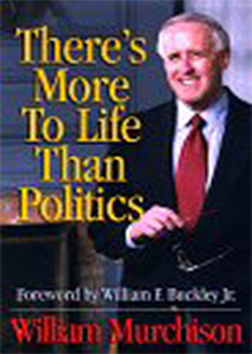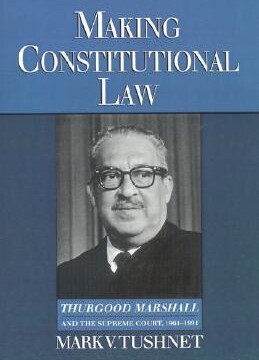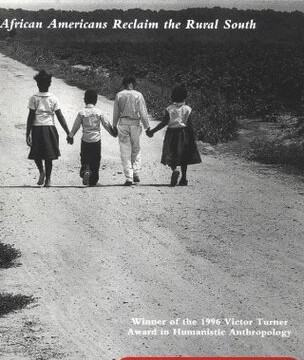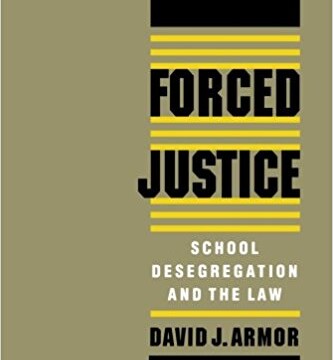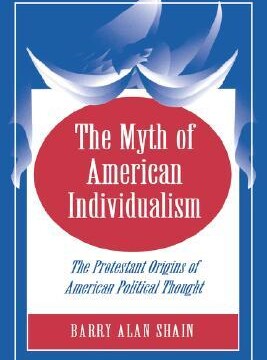Gay marriage is once again in the news. This time, the rumblings come not from the Sandwich Islands, but the Green Mountains of Vermont. In a riding handed down right before Christmas, the state’s governing body, the Vermont Supreme Court, instructed the legislature to extend the benefits and protections of marriage to homosexual couples. The...
Author: William J. Watkins (William J. Watkins)
The Constitution: Hate Crimes’ Latest Victim
New federal hate-crimes legislation is on the way. Never one to miss an opportunity to expands its powers, the national government has capitalized on a perceived rash of hate crimes in order to increase federal jurisdiction, and the Hate Crimes Prevention Act of 1999 (HCPA) will probably become law in the near future. When confronted...
Britain’s Defense Policy
Britain’s defense policy prohibiting homosexuals from serving in the armed forces was recently struck down by the European Court of Human Rights (ECHR). Formed in 1959 to enforce the United Nations’ Universal Declaration of Human Rights, the ECHR is a creature of the 41-nation Council of Europe. The court’s authority comes from the European Convention...
Our Cultural Disorder
Our cultural disorders weren’t caused by the Supreme Court’s prayer decisions—I’ll admit it. The implication that school prayer, by fortifying Young America, might have forestalled the rampage at Columbine High School, and those rampages preceding it—well, I wouldn’t push the matter too far, that’s all. Still, it’s nice to see the American Civil Liberties Union,...
Nolite Confidere in Principibus
Politics obsess Americans. Everything from a child’s education to medical care for the aged is now a political question—indeed, a national political question. Once upon a time, families chose how to educate their children and care for elderly parents, but in modern America this freedom is fast becoming passé. Trapped in the ephemeral world of...
Line Item Veto Act
The Line Item Veto Act has been struck down by the Supreme Court. As I predicted in the February issue of Chronicles (“Reining in the Feds“), the Court (in Clinton v. City of New York) declared that the act violated the Constitution’s Presentment Clause, which commands that a bill passing both the House and the...
Reining in the Feds
On June 26, 1997, the Supreme Court dodged the constitutional questions surrounding the Line Item Veto Act. In Raines v. Byrd, the Court claimed it had no jurisdiction and dismissed the complaint. Federal courts only have jurisdiction over a dispute if it is a “case” or “controversy.” An element of the case or controversy requirement...
A Man for His Time
Charles Hamilton Houston, dean of the Howard Law School, taught his students to view law as an instrument of social engineering, and Thurgood Marshall, one of Houston’s top students in the early 1950’s, never forgot this basic lesson. As a leading advocate in the nation, Marshall served as a catalyst for social change as he...
Look Away, Dixieland!
Black migration from the rural South to the cities of the North is an important chapter in 20th-century American history. What began as a steady trickle developed into a flood as blacks left the land in response to the promises of the factory. The decade of the I920’s alone saw nearly 250,000 blacks make the...
Busing and Its Consequences
Ten years ago, federal district judge Leonard B. Sand ordered the city of Yonkers, New York, to integrate its public schools. Sand accused the city of 40 years of discrimination by concentrating public housing projects in southwest Yonkers. To comply with Sand’s ruling, many neighborhood schools closed their doors as busing became de rigueur. Parents...
Plessy v. Ferguson—One Hundred Years Later
One hundred years ago this May, Plessy V. Ferguson was decided. The Supreme Court’s 1896 decision upheld Louisiana’s law that required all passenger railways operating within the state to have “equal but separate accommodations for the white and colored races.” Over the years, the import of the decision and public perceptions of such state regulations...
Doll Studies
In 1954, the Supreme Court held in Brown v. Board of Education that the state-sponsored segregation of children in public schools was a violation of the Equal Protection Clause of the 14th Amendment, and thus unconstitutional. The Court reasoned that segregation “generates a feeling of inferiority . . . that may affect their [black children’s]...
How Do You Spell ‘Individualism’?
A popular belief about the founding era is that America was a society of atomistic individuals. All that Americans demanded, according to myth, was that their life and property be protected by government; the remainder of their affairs was to be their own concern, Barry Alan Shain, in his new book The Myth of American...
